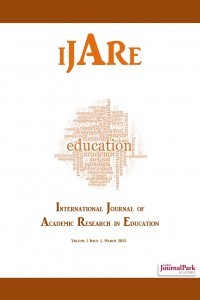Assessing the Feasibility of a Service Learning Activity to Promote Nutritional Knowledge and Behavior
Assessing the Feasibility of a Service Learning Activity to Promote Nutritional Knowledge and Behavior
This one group pre/post study assessed the feasibility of a newly created nutritional course for sixth-grade students from impoverished schools. The sample (N = 512) was comprised of students from the western and southeastern United States. Surveys assessing nutritional knowledge and appropriate diet consumption were completed before and one-week after the end of the course. Pre-service teachers enrolled in their service-learning activity conducted five-nutrition classes (one day per week) on the following topics, (a) The Body & Nutrients, (b) Understanding Food Labels, (c) Food Pyramid Servings, (d) Calorie Intake, and (e) Healthy Eating Goals. The results indicated a dramatic increase in Knowledge yet no gain on Behavior. Implications of these findings are discussed.
___
- Briefel, R. R., & Johnson, C. L. (2004). Secular trends in dietary intake in the United States. Annu. Rev. Nutr., 24, 401-431.
- -
- Campbell, K. J., Crawford, D. A., & Ball, K. (2006). Family food environment and dietary behaviors likely to promote fatness in 5–6 year-old children. International journal of obesity, 30(8), 1272-1280.
- Hoyland, A., Dye, L., & Lawton, C. L. (2009). A systematic review of the effect of breakfast on the cognitive performance of children and adolescents. Nutrition Research Reviews, 22(02), 220-243.
- McGuire, S. (2011). US Department of Agriculture and US Department of Health and Human Services, Dietary Guidelines for Americans, 2010. Washington, DC: US Government Printing Office, January 2011. Advances in Nutrition: An International Review Journal, 2(3), 293-294.
- Ng, S. W., Slining, M. M., & Popkin, B. M. (2014). Turning point for US diets? Recessionary effects or behavioral shifts in foods purchased and consumed. The American journal of clinical nutrition, 99(3), 609-616.
- Reedy, J., & Krebs-Smith, S. M. (2010). Dietary sources of energy, solid fats, and added sugars among children and adolescents in the United States. Journal of the American Dietetic Association, 110(10), 1477-1484.
- Smith, H. L. (2011). An Examination of Third and Fourth Grade TCAP Scores and the Universal Breakfast Program in Unicoi County Tennessee.
- William R.. Shadish, Cook, T. D., & Campbell, D. T. (2002). Experimental and quasi-experimental designs for generalized causal inference. Wadsworth Cengage learning.
- Yayın Aralığı: Yıllık
- Başlangıç: 2015
- Yayıncı: Süleyman Nihat ŞAD
